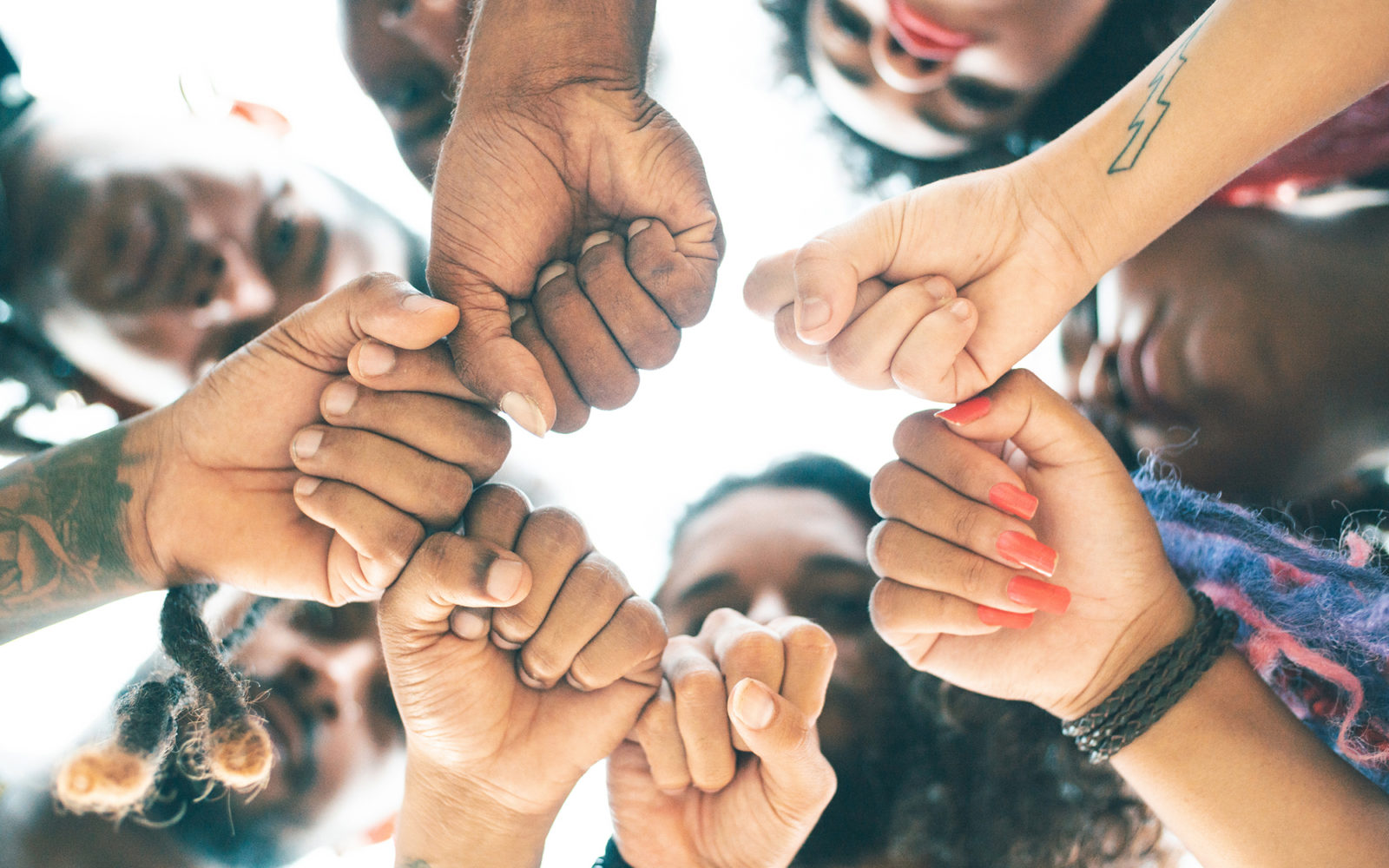Derek Avery on Injecting Facts, Not Feelings, Into DEI Debates

Image above: APS Fellow Derek Avery was the opening keynote speaker at the annual DiverseCity Summit in 2022. Photo credit: Greater Houston Partnership.
APS Fellow Derek Avery, an industrial/organizational psychologist, studies workforce diversity and employee input mechanisms. He is the T. Bauer Chair of Inclusive Leadership in the University of Houston’s Bauer College of Business.
You’re known for your research into workplace diversity, diversity climates, and inclusivity in leadership. What led to your scientific interest in these subjects?

I have a mentor who consistently reminded me that “research is me-search” (thanks Mikki Hebl!). Though I initially fought my natural inclination to study differences, I found myself drawn to that work. From a very early age, I’ve seen how my individual identities influence the way others perceive me, and that fueled my curiosity. As I grew up, those childhood questions evolved to become the focus of my scholarship. For instance, my dissertation stemmed from my questioning whether the trend of depicting racially and ethnically diverse workforces in every recruitment advertisement was scientifically sound. Clearly, most workforces didn’t actually look like the ads being used to attract applicants. What did employers stand to gain (or lose) by deceiving job seekers in this way? This spawned several theoretical and empirical investigations of the efficacy of various diversity recruitment practices (e.g., Avery, 2003).
My interests were also fueled by a desire to push back against what I believe to be intellectually lazy arguments in the literature that have fueled the interests of diversity opponents. For example, prior meta-analyses demonstrated demographic differences in job performance, absenteeism, and turnover. Fair enough. However, some have interpreted these findings to mean that some demographic groups are inherently superior to others and, therefore, are more deserving of employment opportunities. This has proliferated a view of diversity and merit as somehow diametrically opposed, such that a company can have either diverse employees or talented employees, but not both.
My work has challenged this conclusion by showing that situational factors like diversity climate have a considerable impact on the magnitude of any observed demographic differences. When employees are treated fairly and included, most (if not all) of the demographic differences in behavior dissipate (e.g., McKay et al., 2008).
What are some highlights of your research? What has it shown?
First, for all of the talk I hear about prospective backlash to diversity and hospitable diversity climates, it rarely shows up in my research. I’ve never found significant drawbacks associated with hospitable diversity climates, I’ve seen more conditional positive effects of demographic diversity than negative ones (though there are admittedly both), and far more participants in my studies were attracted by organizations possessing and valuing diversity than repelled by them. In fact, the only folks dissuaded by diversity in my research were those who felt strongly that people of different racial and ethnic groups should not mix (i.e., low in other-group orientation).
Second, climates emphasizing fairness and inclusion help level the proverbial playing field with employee attitudes and performance being higher across the various forms of differences and mistreatment being lower (e.g., David et al., 2019; Holmes et al., 2021; McKay et al., 2007; Rubino et al., 2018). Third, dealing with diversity effectively isn’t always easy for individuals or organizations. Differences can make us uncomfortable (Avery et al., 2009), and we may find it easier to work with people who are more similar to us than with those who are more dissimilar (Avery et al., 2007; Avery et al., 2008). That said, experiences of being in the demographic minority make us more adaptable (Volpone et al., 2018), and my current work suggests that being surrounded by diversity often brings out the best in individuals in terms of performance.
For collectives, my work suggests heterogenous groups can outperform homogenous ones… if they are assembled and managed strategically (e.g., Avery et al., 2023; Luksyte et al., 2022). Fourth, identity-based discrimination affects us all. People are often inclined to believe that the impact of discrimination is limited to those with the targeted identity, but this is not true. Through a process of stigma-by-association, even those without the devalued identity can experience discrimination, adversely affecting perceptions of their leadership and their financial compensation (Hall et al., 2019; Hernandez et al., 2016).
What new or expanded research are you planning to pursue?
I plan to focus more attention on identifying ways of building support for diversity, equity, and inclusion (DEI). DEI is under political attack in the United States, but the overwhelming majority of the arguments used to undermine it are not based in science. As the late U.S. senator Daniel Patrick Moynihan famously said, people are entitled to their own opinions, but not their own facts. When facts are brought to the forefront, Americans are considerably less divided about DEI than we appear. For instance, in some of my earliest research with David Kravitz, we found that people were almost universally supportive of the principles underlying affirmative action when we didn’t identify it by name. But this support plummeted when the affirmative action label was attached. Public opinion polling as recently as last year suggests the majority of Americans continue to believe that organizational diversity is a good thing, though there is admittedly less consensus about how organizations should go about acquiring and retaining a diverse workforce. I hope to continue clarifying what DEI actually does (and does not do) and disseminate this information to corporations and the public to make DEI debates more about facts and less about feelings.
This research seeks to build on my prior theoretical work about why people support diversity (Avery, 2011) with support basically stemming from self-interest or values. By demonstrating that everyone is susceptible to identity-based discrimination (directly or by association), I hope to create more widespread self-interest in DEI. By clarifying that DEI is actually about promoting fairness (by reducing discrimination, inequity, and exclusion), I aim to demonstrate that there is far greater consistency between many people’s values (or at least what they profess to value) and DEI than they may have been led to believe.
What is the biggest challenge you have encountered in your career?
Undoubtedly, the biggest challenge has been the strategic proliferation of misinformation about DEI. Early in my life and career, this focused primarily on people playing revisionist historian about the societal impacts of difference. Namely, I—and I suspect many others—was taught a very sanitized version of history that downplayed the severity and scale of bias and discrimination in the United States while minimizing the contributions of all but a single demographic. This distortion of the past not only skewed my education (e.g., the version of American history I learned was virtually devoid of anyone who wasn’t a White, able-bodied man), but also fueled others’ (e.g., reviewers’, editors’, students’, administrators’, and clients’) resistance to my DEI scholarship by questioning the necessity of restorative justice programs like affirmative action or initiatives aimed at promoting equal opportunity. While these distortions certainly haven’t gone away—see elected officials recently downplaying the atrocities of chattel slavery—some of the emphasis has shifted to propagating intentionally overstated social progress narratives (see Kraus et al., 2022 for a fantastic review of how such progress narratives actually stall progress). Don’t get me wrong, the United States, and many other countries, have made considerable progress on a number of social issues in my lifetime. In fact, when I began my career, some employers (e.g., Cracker Barrel) were still openly firing employees on suspicion of being gay or lesbian, and the official U.S. military position on sexual orientation was “don’t ask/don’t tell.” Thankfully, as Dr. Martin Luther King famously said, “The arc of the moral universe is long, but it bends toward justice,” and many organizations have evolved their practices.
That said, there is growing sentiment that our society is significantly farther along this evolution than any legitimate evidence supports. For example, a 2023 Pew poll indicated that 45% of respondents believe that seeing racial discrimination where it doesn’t exist is a bigger problem than people not seeing it where it does. I can’t tell you how many times I was told that America had become “postracial” after the election of President Barack Obama. The problem this misinformation creates for work like mine is that educating students is harder because many have been convinced that (1) things were never really that bad or (2) discrimination is a relic of the past, when neither of these accounts is true. It also makes publishing scholarly research harder because reviewers and editors, who are already skeptical of novel ideas in general, are often especially cynical when the topic is DEI because of the misinformation they’ve come to accept as fact. Early in my career, I felt compelled to “grin and bear it” as I encountered this type of unscientific skepticism in the peer review process. I’ve literally had papers rejected because reviewers were unwilling to concede that people discriminate in the manner that my data illustrated—even in the face of multiple studies replicating the result across differing designs, samples, and settings. More recently, with the help of amazing coauthors, I have sought to raise awareness of the impact of these biases on scholarly careers and the state of our science (e.g., Avery et al., 2022; King et al., 2018; Miller et al., 2021; Roberson et al., 2024).
Anything else you’d like to add?
I talk to a lot of young DEI scholars who are understandably discouraged by the escalating culture wars and the accompanying elevated risk associated with doing this work. As states continue to outlaw DEI in higher education, they find themselves questioning whether it is worth it to pursue this research domain. To them, I offer two important reminders. The first is that our predecessors endured far worse in their pursuit of safe spaces, equal opportunity, fair treatment, and inclusion for those lacking these. They did not quit in the face of resistance and neither will we. The second is that our cause is just and justified. Organizations are at their best when employees are diverse, treated equitably, and included in organizational processes and decision-making. That’s what organizational scholarship—including mine—has shown.
Feedback on this article? Email [email protected] or login to comment.
Related content we think you’ll enjoy
-

Lived Experiences Can Be a Strength. So Why the Bias Against “Me-Search”?
Questions often emerge when researchers tend to engage in research on topics that are personally relevant for them. How is this type of self-relevant research—“me-search,” as it’s popularly known— perceived by the academic and scientific community? A recent study’s lead author, Andrew Devendorf of the University of South Florida, discusses this topic.
-

Global Science Requires Greater Equity, Diversity, and Cultural Precision
Three authors discuss the discrepancy between espoused ideals for a global science and implicit biases that perpetuate unequal visibility and representation in psychological science.
-

Science for Society: How Research Can Foster Social Equity
To create lasting social change, psychological scientists are not just studying marginalized communities, but partnering with them.
Avery, D. R. (2003). Reactions to diversity in recruitment advertising—are differences black and white? Journal of Applied Psychology, 88(4), 672–679. https://doi.org/10.1037/0021-9010.88.4.672
Avery, D. R. (2011). Support for diversity in organizations: A theoretical exploration of its origins and offshoots. Organizational Psychology Review, 1(3), 239–256.
Avery, D. R., Dumas, T. L., George, E., Joshi, A., Loyd, D. L., van Knippenberg, D., Wang, M., & Xu, H. (2022). Racial biases in the publication process: Exploring expressions and solutions. Journal of Management, 48(1), 7–16. https://doi.org/10.1177/01492063211030561
Avery, D. R., McKay, P. F., & Wilson, D. C. (2007). Engaging the aging workforce: The relationship between perceived age similarity, satisfaction with coworkers, and employee engagement. Journal of Applied Psychology, 92(6), 1542–1556. https://doi.org/10.1037/0021-9010.92.6.1542
Avery, D. R., McKay, P. F., & Wilson, D. C. (2008). What are the odds? How demographic similarity affects the prevalence of perceived employment discrimination. Journal of Applied Psychology, 93(2), 235–249. https://doi.org/10.1037/0021-9010.93.2.235
Avery, D. R., Richeson, J. A., Hebl, M. R., & Ambady, N. (2009). It does not have to be uncomfortable: The role of behavioral scripts in Black–White interracial interactions. Journal of Applied Psychology, 94(6), 1382–1393. https://doi.org/10.1037/a0016208
Avery, D. R., Rhue, L. A., & McKay, P. F. (2023). Setting the stage for success: How participation diversity can help teams leverage racioethnic diversity. Journal of Management, 49(4), 1312–1343. https://doi.org/10.1177/01492063221082522
David, E. M., Avery, D. R., Witt, L. A., Tonidandel, S., McKay, P. F., Brown, L., & Crepeau, L. (2019). Helping misfits to commit: How justice climate attenuates the effects of personality dissimilarity on organizational commitment. Journal of Business and Psychology, 34, 503–517. https://doi.org/10.1007/s10869-018-9556-7
Hall, E. V., Avery, D. R., McKay, P. F., Blot, J. F., & Edwards, M. (2019). Composition and compensation: The moderating effect of individual and team performance on the relationship between Black team member representation and salary. Journal of Applied Psychology, 104(3), 448–463. https://doi.org/10.1037/apl0000378
Hernandez, M., Avery, D. R., Tonidandel, S., Hebl, M. R., Smith, A. N., & McKay, P. F. (2016). The role of proximal social contexts: Assessing stigma-by-association effects on leader appraisals. Journal of Applied Psychology, 101(1), 68–85. https://doi.org/10.1037/apl0000030
Holmes IV, O., Jiang, K., Avery, D. R., McKay, P. F., Oh, I. S., & Tillman, C. J. (2021). A meta-analysis integrating 25 years of diversity climate research. Journal of Management, 47(6), 1357–1382. https://doi.org/10.1177/0149206320934547
King, E. B., Avery, D. R., Hebl, M. R., & Cortina, J. M. (2018). Systematic subjectivity: How subtle biases infect the scholarship review process. Journal of Management, 44(3), 843–853. https://doi.org/10.1177/0149206317743553
Kraus, M. W., Torrez, B., & Hollie, L. (2022). How narratives of racial progress create barriers to diversity, equity, and inclusion in organizations. Current Opinion in Psychology, 43, 108–113. https://doi.org/10.1016/j.copsyc.2021.06.022
Luksyte, A., Avery, D. R., Parker, S. K., Wang, Y., Johnson, L. U., & Crepeau, L. (2022). Age diversity in teams: Examining the impact of the least agreeable member. Journal of Organizational Behavior, 43(3), 546–565. https://doi.org/10.1002/job.2570
McKay, P. F., Avery, D. R., & Morris, M. A. (2008). Mean racial–ethnic differences in employee sales performance: The moderating role of diversity climate. Personnel Psychology, 61(2), 349–374. https://doi.org/10.1111/j.1744-6570.2008.00116.x
McKay, P. F., Avery, D. R., Tonidandel, S., Morris, M. A., Hernandez, M., & Hebl, M. R. (2007). Racial differences in employee retention: Are diversity climate perceptions the key? Personnel psychology, 60(1), 35–62. https://doi.org/10.1111/j.1744-6570.2007.00064.x
Miller, T. L., Wesley, C. L., Bell, M. P., & Avery, D. R. (2021). Hold the torch: Shining a light on the lives of black management faculty. Journal of Management, 47(2), 351–367. https://doi.org/10.1177/0149206320968621
Roberson, Q., Avery, D., & Leigh, A. (2024). How woke was the symposium on woke organizations? An insider perspective. Academy of Management Perspectives, 38(2), 260–266. https://doi.org/10.5465/amp.2023.0459
Rubino, C., Avery, D. R., McKay, P. F., Moore, B. L., Wilson, D. C., Van Driel, M. S., Witt, L. A., & McDonald, D. P. (2018). And justice for all: How organizational justice climate deters sexual harassment. Personnel Psychology, 71(4), 519–544. https://doi.org/10.1111/peps.12274
Volpone, S. D., Marquardt, D. J., Casper, W. J., & Avery, D. R. (2018). Minimizing cross-cultural maladaptation: How minority status facilitates change in international acculturation. Journal of Applied Psychology, 103(3), 249–269. https://doi.org/10.1037/apl0000273





Comments
This is an interesting interview. I have supported diversity, equity, and inclusion since volunteering to serve as a race relations instructor and equal opportunity and treatment office in the Air Force in the mid 1970s. Unfortunately, I think political polarization on both sides has derailed programs intended to promote socially just organizational outcomes. Of all the types of diversity, I think a diversity of opinion and perspectives protected by academic freedom is the most important.
My own efforts to gather relevant data about perceptions about hostile environments and academic freedom as part of my I/O Psych class was judged to be “dangerous” by several politically motivated administrators. I was suspended, exiled from campus, prohibited from communicating with students, and eventually judged to be incompetent by a faculty panel under the direct supervision of the dean of faculty. Some of the most relevant findings and references can be found here:
https://www.mindingthecampus.org/2024/04/16/the-baffling-bull-behind-title-ix/
APS regularly opens certain online articles for discussion on our website. Effective February 2021, you must be a logged-in APS member to post comments. By posting a comment, you agree to our Community Guidelines and the display of your profile information, including your name and affiliation. Any opinions, findings, conclusions, or recommendations present in article comments are those of the writers and do not necessarily reflect the views of APS or the article’s author. For more information, please see our Community Guidelines.
Please login with your APS account to comment.